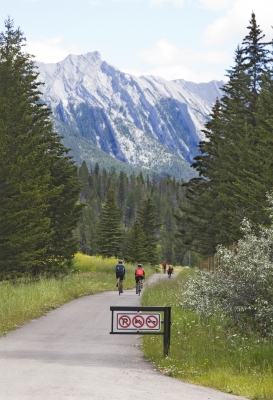Cycling in the UK is currently experiencing unprecedented levels of recognition. British successes in the Tour de France, Olympics and Paralympics have created a rumbling bandwagon that has grabbed the public’s imagination.
 With road and track cycling receiving all the exposure, mountain biking has flown somewhat under the radar of this rise in popularity.
With road and track cycling receiving all the exposure, mountain biking has flown somewhat under the radar of this rise in popularity.
While public enthusiasm for the sport may not have altered too much, there is still a great deal of respect shared between the other forms of cycling. Many road cyclists enjoy mountain biking, and benefit greatly from the skills it teaches.
In fact, many pro road riders come from mountain biking backgrounds. Last year’s Tour de France winner, Cadel Evans is a former mountain biker, for example. Lance Armstrong has gone the other way, of course, injecting himself into mountain biking after retiring from road racing.
Taking to the Mountains
Moving from road cycling to the mountains is surprisingly difficult. While many road skills are transferable, you’ll find that other aspects are completely alien from the comfort of the tarmac.
The two sports are clearly very different but, if you are able to master both, you’ll return to the roads a better rider. The skills you’ll learn from mountain biking will give you an advantage over your competitors.
Mountain bikers are generally excellent bike handlers. Taking to the mountain bike saddle will help you dramatically improve your bike control.
These skills will be invaluable on the roads. If you can ride with increased control, you’ll be able to negotiate yourself through bunched group situations, and improvise effectively when faced with unexpected curbs or obstacles. These skills can be the difference between a painful fall and a new personal best time.
 When mountain biking, you need to be on the ball at all times. If you’re used to riding smooth, endless roads, you can effectively drift into autopilot at times. There’s no such leeway when tackling crumbly, obstacle ridden trails.
When mountain biking, you need to be on the ball at all times. If you’re used to riding smooth, endless roads, you can effectively drift into autopilot at times. There’s no such leeway when tackling crumbly, obstacle ridden trails.
Even momentary lapses of concentration can leave you counting your broken bones.
For this reason, you’ll also need to learn self-reliance skills. If you plan to mountain bike solo, you can find yourself very isolated if you suffer a fall. You need to have the ability to calmly deal with these situations, as well as the toughness to overcome your pain and get to safety.
Purchasing – and learning how to use – a survival kit like this one will help you get out of many sticky situations.
Getting into Mountain Biking
You should enter mountain biking as a complete beginner, even if you’re experienced on the roads. If you take on too much too soon, you’re likely to injure yourself. You need to take time to build up the necessary instincts and knowledge before tackling tricky trails and steep downhill sections.
If you’re looking to try out some trails, there is a list of picturesque English trails here. If you’re in Scotland, try here. You will also find a good guide to choosing a beginner bike right here on our own site.
Of course, it’s not a one way street. Mountain bikers can also greatly improve their performance by dabbling in road riding. Building fitness on the roads will help you prepare for longer trails by increasing your power output and endurance levels. These skills will ensure you always have fuel left in the tank while out on longer trails.
If you’ve any tips for riders looking to take up mountain biking, please pop them in the comments section below.
Image courtesy of www.freedigitalphotos.net


Recent Comments